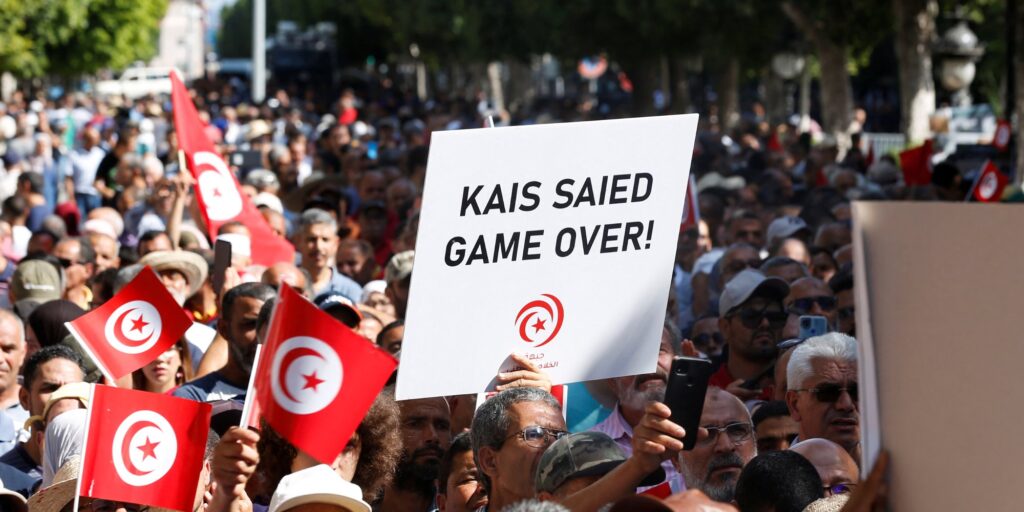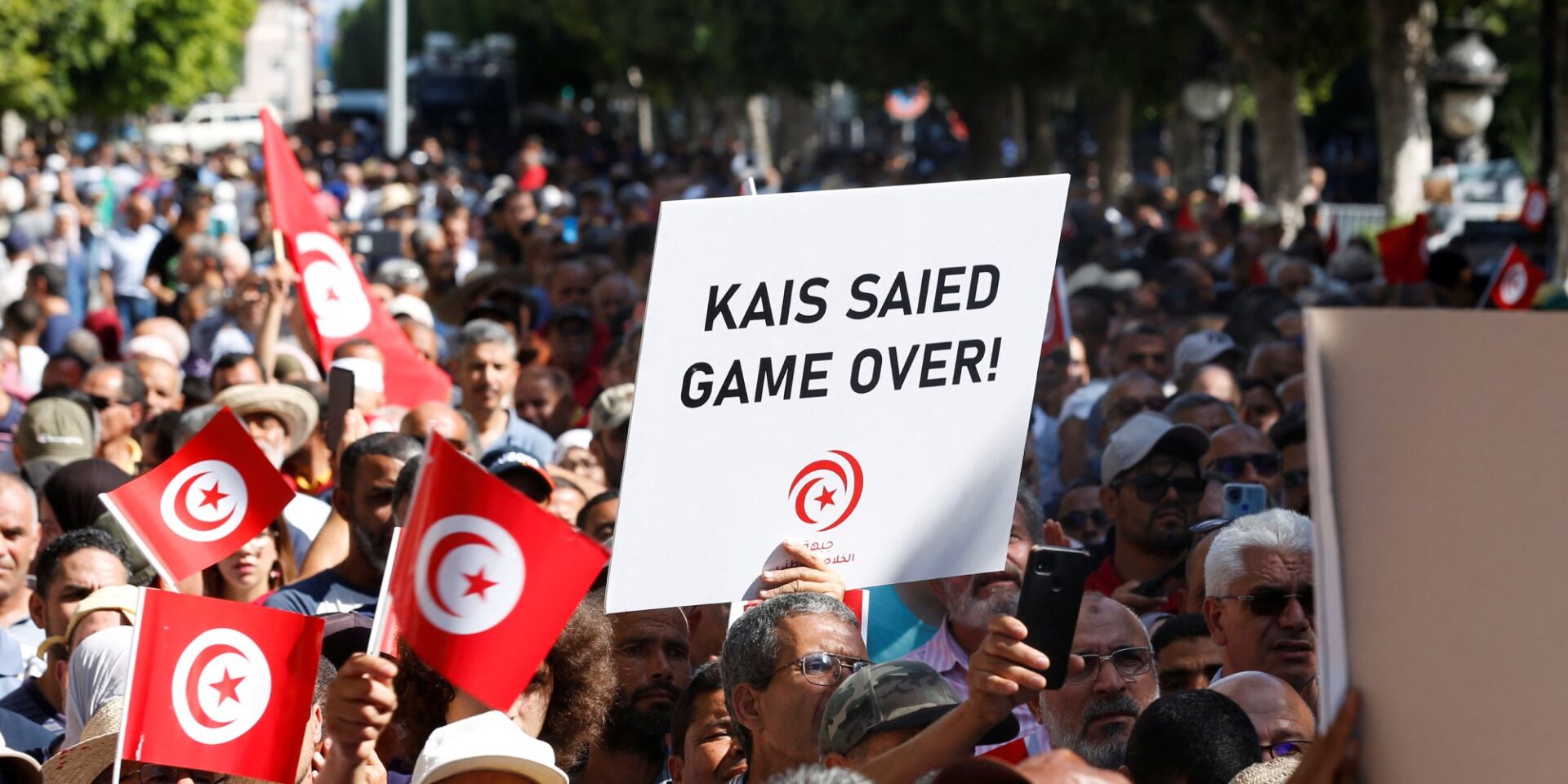
Voter apathy dominated Tunisia’s presidential election Sunday, with a turnout of under 30% in the country’s third presidential ballot since becoming the first nation to topple a dictator in last decade’s Arab Spring.The results have yet to be announced in Sunday’s election pitting President Kais Saied, imprisoned businessman Ayachi Zammel and Zouhair Maghzaoui, a leftist who supported Saied before choosing to run against him.
Throughout the day, there were few signs in much of Tunisia’s capital that an election was even underway after a campaign that saw a nearly unrelenting stream of arrests of Saied’s potential challengers. Saied, a 66-year-old former law professor who rode anger against the North African country’s post-Arab Spring political class to a firm term, is expected to easily win the election with his most prominent opponents languishing in prison.His first term has been tumultuous.
While the economy struggled, Saied in 2021 invoked emergency powers, suspended Tunisia’s parliament and rewrote the country’s constitution to give the presidency additional powers. Though it is difficult to gauge the depth of his support, his backers have remained loyal to giving him time to complete his political program to build a “New Tunisia.”Much of the opposition chose to boycott the election, calling it a sham due to what they called an “authoritarian drift.”
Some voters in Tunis, however, said it was a duty to participate.Khaled Lamsi, a 50-year-old taxi driver, called voting “a national obligation.”“I want the new president who will be elected to do good things for our country and for our children, and their future, and our lives,” he said. “To not vote is not a solution. On the contrary, the people must come out and vote to show that the Tunisian people participate in these elections and Tunisia can be better over the next five years,” said 39-year-old Alaeddine Jawadi. At the time polling stations closed, 2.7 million voters — 27.7% of the electorate — had cast ballots. That’s far fewer than the 49% who participated in the first round of the last presidential race in 2019. Yet it’s greater than the less than 12% who participated in 2022’s parliamentary elections and last year’s local elections.Dozens of candidates had expressed interest to challenge Saied and 17 submitted preliminary paperwork to run in Sunday’s race. However, members of the election commission, all of whom are appointed by the president, approved only three. They ignored a court ruling ordering them to reinstate three other challengers. Zammel was later imprisoned and charged with forging voter signatures to qualify for the ballot, which his attorney denied.
(AP)


